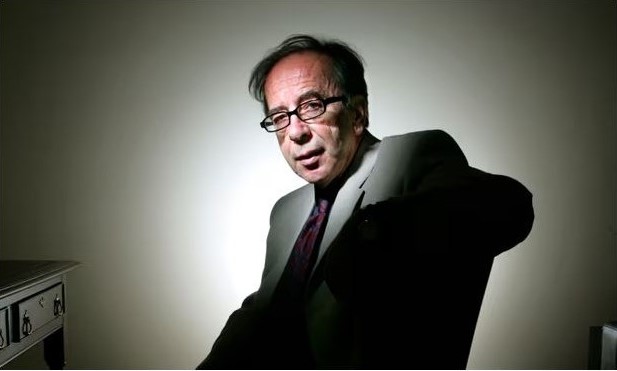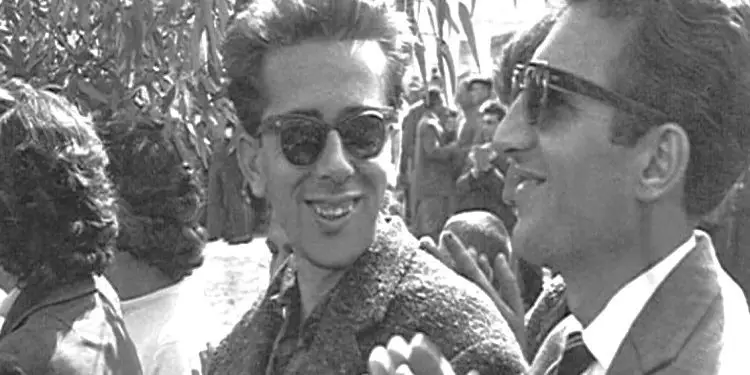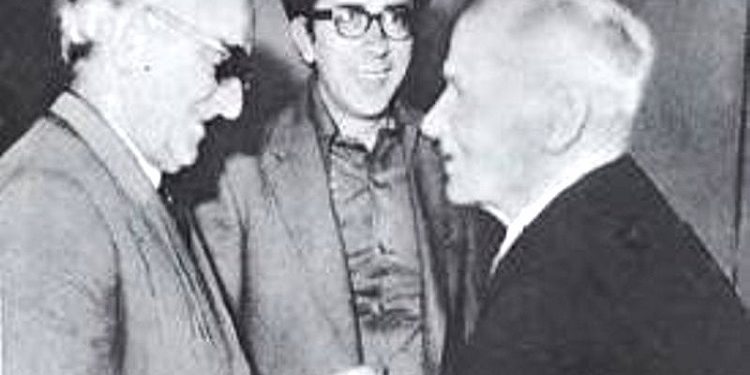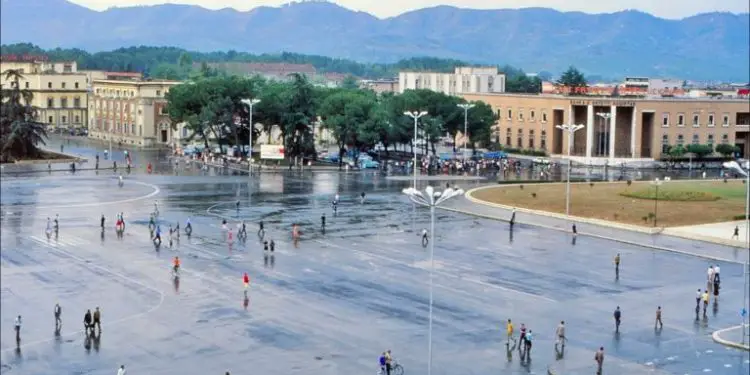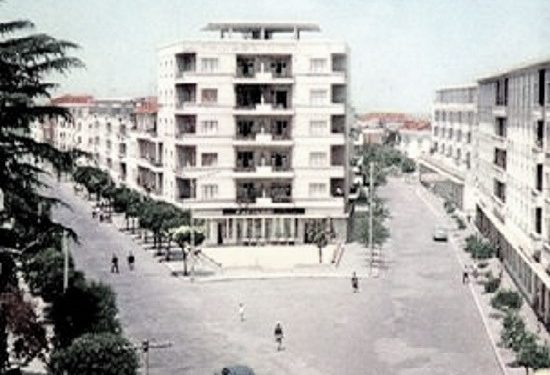Memorie.al / The following interview was published in the American magazine “The New Yorker” in a special issue for writers from around the world, on the occasion of the publication of the novel “The Successor.”
THE NEW YORKER: The situation you describe in the story “The Writers’ Union of Albania Reflected as a Woman” is based on real events in Albania in the ’60s; even the last sentence implies that it’s autobiographical. Is this true?
ISMAIL KADARE: These impressions are entirely accurate. The events described were familiar not only to the community of writers but to a part of the Albanian capital. Since this capital had a boring life, like all communist capitals, what was happening in the Writers’ Union was followed with curiosity by everyone.
THE NEW YORKER: Was there really a “Margarita” like the one in the story?
ISMAIL KADARE: Yes. But not the one described in this story. I want to clarify in this case that in communist countries, girls with liberal views on life, especially on love, were often considered debauched. In reality, they were among the most interesting girls. A kind of “dissent,” if it could be called that, in their thoughts, made them extremely attractive from every point of view, including the erotic one.
THE NEW YORKER: Were you “rotated” outside the capital as a young writer? What was your life like in those years?
ISMAIL KADARE: I completed precisely that “rotation” that I described. This happened in the years 1967-1968, a time when Albania was imitating the Chinese Cultural Revolution. I left Tirana, the capital, to live in Berat, a very old city, 150 km away from the capital. It was difficult, of course, but life under the communist regime had so many dangers and difficulties that a departure from the capital didn’t seem so tragic.
THE NEW YORKER: The story treats the suppression of literary freedom under Enver Hoxha’s regime with doses of humor. You have captured the sharp pride of a young writer, which I find universal—a description just as valid for an ambitious literary person today in New York as it was then for an Albanian author. But I believe that at that time, you couldn’t take these things lightly. Did you feel that your literary work at that time was being censored or made difficult in other ways?
ISMAIL KADARE: Life under communism had its strong tragic sides, but they were also intertwined with comical, even grotesque, episodes. The general picture of life could be characterized as tragicomedy. Looking back at the works written at that time, I see that humor, satire, and mockery are never missing. This proves that the writer’s spirit was not crushed by evil. Writers from the former East, like Kundera, have often repeated that laughter and mockery were a form of rejecting that world.
ISMAIL KADARE: Of course, what was happening was not amusing for us. But on the other hand, it’s a mistake to imagine literary life and the writers themselves as something dead, incapable of thinking about anything. To make it clearer, let me tell you that in 1967, when the events of the story took place, besides my poems, I had published three prose works: the novel “The General of the Dead Army,” the story “A Cafe Day,” and the novel “The Monster.” The latter two were banned as “decadent works,” but since the ban was imposed after their publication, they were widely known to the reader. Not only that, but as “scandalous,” banned works, they had created for me, along with the difficulties, a certain weight in the eyes of the reader. It was one of the strange contradictions of life: because of the problem with the state, I was viewed with some suspicion, but precisely this, in certain circles, increased my authority. This, it seems, creates the impression of pride and pretense. What we wrote was, of course, censored. But much more terrible than censorship was self-censorship. It was the true death of art. Fortunately, I managed not to be infected by it.
THE NEW YORKER: Although you have spent the last fifteen years in France, you mostly write about Albania. Is this because the country where you were formed gives you stronger literary material, or simply because it is so ingrained in you that you could not write about another country?
ISMAIL KADARE: It is normal for a writer’s work to remain connected to the country where he spent most of his life, just as it is equally normal for it to be detached from it. Something in between happened to me. First, let me tell you that a part of my work has nothing to do with Albania, either as a landscape or as an event. The subject of “The Pyramid,” for example, published in the USA a few years ago, although it has a universal idea about dictatorship at its core, including the Albanian one, takes place in ancient Egypt. And so does “The Palace of Dreams,” which takes place in Constantinople, or other novels and stories that take place in Moscow, in Northern Greece, or in unreal and imaginary lands (heaven, hell, etc.). I don’t make any effort to stay within the Albanian border, just as I don’t make an effort to go outside of it.
THE NEW YORKER: Was it difficult for you to leave Albania precisely at the time when the communist regime was disintegrating? Do you regret not being there to see the first years of the transition, or were those years even more difficult than the preceding period? Do you spend a lot of time in Albania now?
ISMAIL KADARE: Although I had the opportunity to leave, I stayed in Albania during the darkest and most dangerous time. I was convinced that I would die without seeing the fall of communism. When I decided to leave, it was for no reason of danger. The tyrant was dead. The regime could no longer sentence people. In the book “Albanian Spring,” published in London, I explained the reasons and circumstances of my departure. After a harsh correspondence with the country’s communist president, I understood that the regime, despite giving seemingly liberal signs, had no intention of softening. Albania was at risk of remaining like Cuba, like North Korea. To tear off the mask of the president’s and the regime’s hypocrisy, to encourage a democratic movement, I needed the microphone of a radio-TV, or a newspaper. But they were still impossible in Albania. I sent word to my French publisher to organize a book promotion in Paris, to justify the trip there. I waited five months until I got the visa. The microphone I was looking for became “Voice of America.” Through it, I achieved my goal. In “Albanian Spring,” there is my statement read there. It had the effect of a bomb in Albania. A year and a half later, the regime fell, and I, as I had promised in my statement, returned to the country. I now live in Albania more than half the time.
THE NEW YORKER: What was it like to live in the West after fifty years spent in socialist Albania?
ISMAIL KADARE: Adapting to Western life was not difficult. What was difficult at first, and then joyful, although dramatic, were the news coming from Albania. Practically, I lived at their pace.
THE NEW YORKER: Many of your works are either directly or allegorically political. Do you feel any obligation to include the political sphere in your works?
ISMAIL KADARE: I don’t believe there is more politics in my works than in ancient Greek theater. I have not been afraid of its presence or its absence. No one has ever forced me to write something political, not even in the wildest years of the dictatorship. The only obligation, the only “tax,” was what was general for everyone. To have the right to deal with eternal or mythological motifs, you had to write one or two works about contemporary life. Does it seem grotesque to you? That’s how it was. Otherwise, in the press, in meetings, everywhere, you would find yourself facing the question: Comrade X, why don’t you write anything about our socialist life? Don’t you like this life? Do you have a deeper reason? The deeper reason (it was implied that you are an enemy) would lead you to prison or execution.
THE NEW YORKER: What do you think is happening with Albanian literature today?
ISMAIL KADARE: Albanian literature is developing normally like any literature in a free country. But, as in all countries of the former communist empire, the illusion that a miracle would happen after the fall of communism remained an illusion. Literature has its own internal laws of development. Just as it can be free in captivity, it can also be captive in freedom. The writers of the world know this well.
THE NEW YORKER: Your writings have been highly valued in France, where your “complete works” are also being published. Has it been more difficult to connect with the English-speaking reader?
ISMAIL KADARE: My first novel was published in New York in 1971, so a year later than in France. The second novel, “Chronicle in Stone,” was greeted with a very kind article by John Updike, precisely in your magazine “The New Yorker.” Then a dozen others were published. It is true that in France I have a broader recognition, but I think that recognition in the Anglophone world is more difficult for all European authors. / Memorie.al




